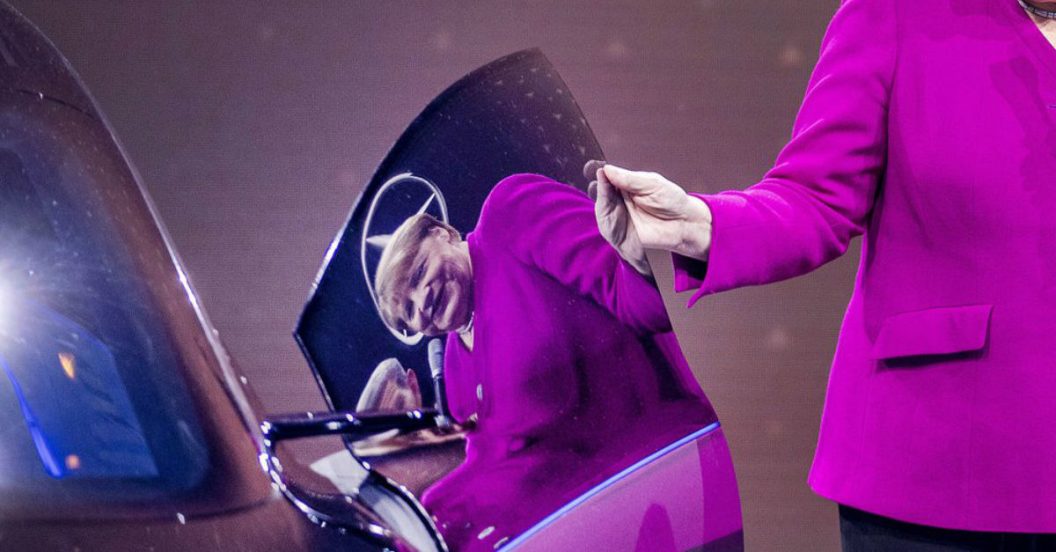The following is a story from the Associated Press.
FRANKFURT, Germany (AP) — Environmentalist staged a protest Thursday at the start of the Frankfurt Motor Show, hours after German Chancellor Angela Merkel acknowledged that her government and the country's powerful automakers face a "Herculean task" meeting the goals set for combating climate change.
Speaking ahead of the show's public opening, Merkel confronted industry leaders with a painful statistic: unlike other areas of the economy, emissions of greenhouse gases from Germany's transport sector have remained unchanged since 1990 despite increasingly efficient vehicles.
"Each time we got more efficient cars (...) the amount of traffic increased," Merkel said.
Environmental groups say the trend for bigger and more powerful cars, particularly SUVs, is eating up the fuel efficiency of recent decades. Greenpeace activists unfurled large banners at the show branding the models on display "climate killers."
Read More: WHY GERMANY'S TRABANT IS BETTER THAN THE FERRARI LAFERRARI
Bernhard Mattes, head of Germany's automaker lobby group VDA, insisted that the industry is committed to reducing its carbon footprint, but said customers are demanding bigger, not smaller vehicles.
He urged the German government to refrain from setting new, tougher emissions targets and said automakers favor capping the amount of CO2 released into the atmosphere via a national or European emissions trading system.
Later Thursday, the VDA announced in a written statement that Mattes had informed the group he was planning to step down from his position at the VDA by the end of the year "to focus on other tasks." There were no further explanations.
Merkel, whose Cabinet is due to agree on a package of climate protection measures next week, indicated that some form of carbon pricing is unavoidable if Germany is to cut its emissions by 40% by 2030 compared to 1990 levels.
"Those are the guidelines we've set ourselves for achieving the climate targets," she said, referring to the 2015 Paris accord that aims to keep global warming well below 2 degrees Celsius by 2100 compared to pre-industrial times.
"That's a Herculean task," Merkel added. "For you, and for us."
Read More: IS GERMANY'S AUTO INDUSTRY REALLY STRUGGLING THAT BAD?



